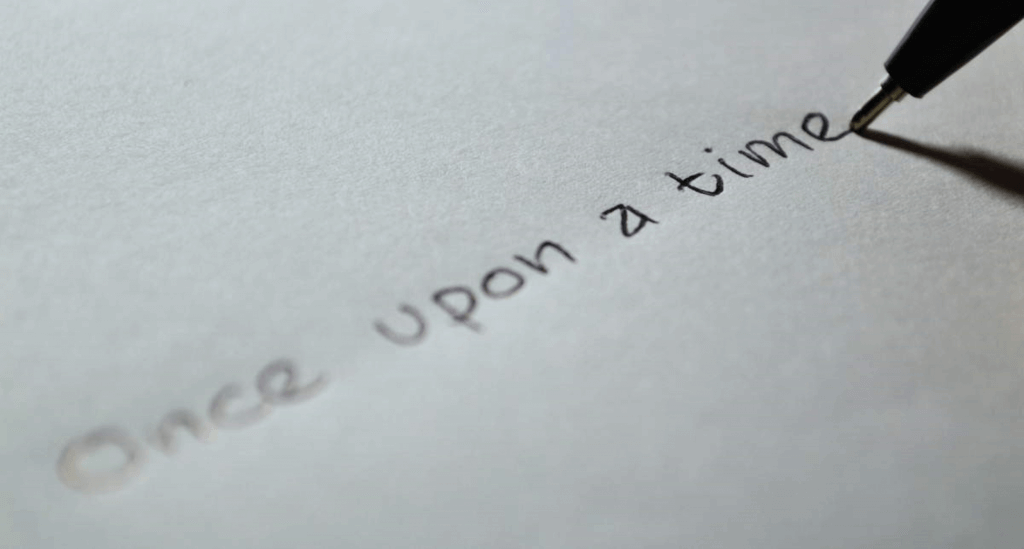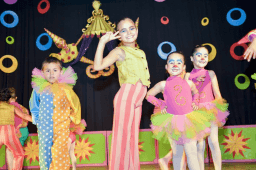World Storytelling Day
World Storytelling Day is observed next on Friday, March 20th, 2026 (94 days from today).

World Storytelling Day is celebrated on March 20 each year, the same time as the March equinox or the first day of spring. What do the sentences “Once upon a time…” remind you for what? Well, those are none other than stories. So we all love to hear or tell stories. Of course, most of us have grown up hearing a lot of stories. Love for stories varies from person to person because there are so many genres. Storytelling needs creativity and ingenuity to express the story in the best way to impress the listener. So good storytellers can move on World Storytelling Day. Come to life by eloquently expressing quality thoughts on your story. Make your listeners eagerly wait for the next moment until you finish telling the story.
History of World Storytelling Day
Storytelling has been around since time immemorial. In fact, we cannot make sense of the world around us without narrative, unable to function without the power of storytelling to help us bring it all together. It is our brains that are wired to understand stories and convey them!
Throughout history, storytellers have been revered and celebrated in cultures around the world, often seen as leaders, teachers, entertainers and more. In the middle Ages, for example, wandering storytellers known as theater actors or troubadour’s delighted royalty and peasants alike with their fascinating stories, which they often gathered from the different places and countries they have traveled through.
While one of the many peculiarities of oral storytelling is that each narrator can tell his or her own story, it's also helpful to have ways of remembering them. For example, Aboriginal people in Australia used cave drawings to help bring stories to memory, and storytellers often used songs, chants and dances to help with recollection. Popular storytelling techniques also stem from this need for memorization as do improvisational stories - putting phrases like "Once upon a time" and "happily ever after", typical plot structure, Prototypical characters, repetition, rhyme and more assist the narrator in mastering this art form.
World Storytelling Day has evolved over time and spread across the globe. It all started in Sweden in 1991, when the Alla berättares dag (Day of All Storytellers) was celebrated at the third equinox. Moreover, it wasn't long after the beginning of the rest of the world.
By 1997, the event had reached Australia and Latin America, and by 2002, it had spread to the rest of Scandinavia. 2009 was the first time of this holiday that was commemorated across six continents (not including Antarctica, of course!). World Storytelling Day takes place every year and focuses on a different theme each time, such as dreams, trees and trips.
With its purposes, World Storytelling Day honors the art of oral storytelling much more people around the world about telling and hearing stories in their languages. Every participant can connect with others across the globe who are also contributing, making it a truly international festival that creates new friendships and promotes a positive understanding of cultures in the world!
The power of storytelling
Everyone who spent an afternoon on reading a book or being impossible to go to bed because of having no a story told by their parents, will understand the power of stories and storytelling. They transport us to other worlds, allow us to indulge in our own imaginations, inspire us to be better people, and help us understand more about the people around us. .
Stories are the key to knowledge, education and learning. Each generation can pass on its wisdom to the next, not through some dry and dusty old textbook, but through stories that truly captivate listeners. Through storytelling, we can practice skills like empathy – putting ourselves in the shoes of others so we can see the world from their perspective. We can also learn from the trials and tribulations of the characters, being less likely to make the same mistakes ourselves.
Storytelling also helps us understand the world around us, as we humans naturally seek explanations and patterns. Even science can be thought of as a kind of storytelling - from ancient gods who struck thunder to the earth at the center of the solar system, from evil spirits that caused disease to knowledge. In our current state of quantum mechanics, science has always used narrative to try and explain the universe in which we live.
Storytelling is also important for preservation and cultural identity. For example, some indigenous communities unify and impart cultural values through storytelling. And while the richness of stories allows us to learn about people, places, countries, and cultures beyond ourselves, their ubiquity means they help build relationships and shared experiences among all of us.
Today, storytelling is also key in business, especially marketing. Think of an ad that stuck with you and why - chances are it has a compelling story! Ads that revolve around a story not only build an emotional connection with us, but also engage us more and thus become more memorable.
Some ways to tell a story on World Storytelling Day
Did you know that Dracula and James Bond actually belong to the same type of story? It all revolves around the seven basic plots of storytelling, which is a narrative structure used in all the stories you've ever read, heard, or seen. So let's spend this World Storytelling Day learning more about what they are all about!
Overcoming the monster
The main character (hero) begins to defeat the villain (villain) to save the country/homeland/all humanity. Stories with plots like this are common in the action and fantasy genres, and include everything from supervillains to monsters that must be defeated. James Bond, Star Wars, Jaws, Dracula, King Kong or Beowulf are some examples.
Rags to get rich
The poor protagonist earns money (or love, or both). Then they keep losing it, only to win it all back again. The protagonist then matures as a human, learning to appreciate the important things in life - such as friends, family, health or love. There are some typical examples including Cinderella, Brewster's Millions, Aladdin, Jane Ayre, Great Expectations or David Copperfield.
Mission
The main character and their companions embark on a journey of some kind. They try to pick up/deliver a specific item or try to get to a specific location. They have to face to many challenges and obstacles along the way. Here are some examples for you to refer: The Lord of the Rings, Iliad, Raiders of the Lost Ark, Monty Python and the Holy Grail, or Harry Potter.
Journey and return
Protagonists leave the world they are used to and go to a new, often overwhelming, place. In doing so, they overcome obstacles to learn an important lesson. They then take this knowledge home with them. Finding Nemo, Alice in Wonderland, Odyssey, The Hobbit, Gone with the Wind, The Lion King, or Back to the Future are some typical examples for us.
Comedy
A light-hearted and humorous story, where the plot often becomes more and more confusing. Usually, this involves events such as identity confusion, misunderstanding or conflict. Finally, an unraveling event takes place that leads to a happy ending. Most love stories fall into this category. Examples are Bridget Jones' Diary, Four Weddings and a Funeral, A Midsummer Night's Dream, Sliding Doors or The Big Lebowski.
Tragedy
Unlike in the comic plot, there is no happy ending to be found here. The main character is a hero with the main flaws of the character, although they are usually very kind. These flaws eventually lead to their downfall. Examples are Macbeth, Breaking Bad, Citizen Kane, Romeo and Juliet, or Anna Karenina.
Regeneration
The main character has to change their ways to become a better individual. Sometimes something like illness, a curse, or a spell affects their poor behavior, and they struggle to come out and be a better person again. Beauty and the Beast, A Christmas Carol, Pride and Prejudice, Snow Queen, or Secret Garden are some examples for reference.
How to celebrate World Storytelling Day
There are many ways to celebrate World Storytelling Day. Gather your loved ones, be it around a bonfire under the stars or somewhere cozy and warm inside, and take turns sharing your favorite stories. Think about how to really engage your audience - suspenseful pauses, different voices for each character, keeping them engaged in the story - a fire for drama that goes a long way long way on World Storytelling Day!
It's especially fun to get kids involved, because more than anyone, they can appreciate the magic of stories. How about creating some sets and props, putting them with some creative costumes together, or inventing songs and dancing routines to go along with your story? Puppet shows are another fun way for kids to practice their storytelling skills or you can all choose a character and act out the story.
And you don't just have to tell the stories you've heard - if you're feeling particularly creative, then invent your own! The sky is really the limit when it comes to storytelling - setting, genre, style and more is entirely up to you. Think about the beginning, middle, and end, how (and if!) the characters learn and grow, and what kind of storyteller you want to be.
Check out your local library, literary institutions and other arts and culture venues - they are bound to host events to mark the occasion. For example, they might host a performance from a professional storyteller who really keeps the audience engaged.
Literary festivals are another great way to hear stories from professionals and hone your own skills. Popular events include open microphone sessions, workshops for people to learn more about the craft, panel discussions with experts, and even the opportunity to hear and meet with published writers.
Make sure to check the latest information about World Storytelling Day via YouTube, social media and Facebook page to connect with others around the world. Thanks to the magic of technology, you can hear stories told on the other side of the planet and in many different languages. It's a great way to make new friendships and grow an international community of storytellers.
As the result, let gather and discuss with your loved ones about how to enjoy this day to celebrate the art of oral storytelling! Why not spin a thread and spread your stories to people around the world?
Observed
World Storytelling Day has been observed the first day of Spring.Dates
Wednesday, March 20th, 2024
Thursday, March 20th, 2025
Friday, March 20th, 2026
Saturday, March 20th, 2027
Monday, March 20th, 2028


